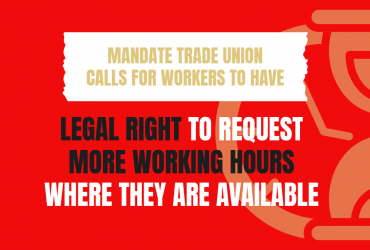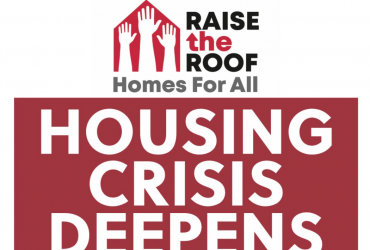Gagging on the gig economy
Monday 12 February 2018SOME of you might have heard of the “gig economy” and more of you might be wondering what the gig economy is. Has it anything to do with music or outdoor events you might well ask. It sounds fun and exciting but words and phrases are often used to hide reality or portray a more benign picture.
The “gig economy” for the majority of workers simply means unfettered exploitation. The “service provider” [employer] has simply carved up what were once decent jobs and re-classified them as self-employed, and in doing so washes their hands of all responsibility to the “new gig workers” who are now deemed self-employed.
So these so called gig workers are entitled to no holidays, no pension, no sick pay, no contract, no rights, and no future. The “service provider” will often say that “gig workers” take these self-employed (bogus) jobs as a lifestyle choice, that gig workers like to work when they want, for as long as they want, on days of their choosing – it suits the gig workers they contend.
We hear the same from employers who only offer part-time or flexi contracts to their employees. This is frankly delusional for these gig service providers have total control over their workers via sophisticated technology which monitors their every move, their speed, rate of productivity and customer response.
Who are the gig workers? The most visible are the delivery bike riders, large square boxes strapped to their backs as they weave in and out of our city traffic delivering our meals or our post. They race the traffic lights, taking the short cuts, endangering themselves and others in their quest to make an income and hoping they might get a tip. Their delivery times and routes monitored and customer feedback analysed by sophisticated software so that so-called unproductive workers can be weeded out. Their own health and safety is solely their responsibility, they fall or crash they are not covered.
But gig workers are also across other sectors, they are the ”pickers” in warehouses and distribution centres, the home-helps paid per client visit, they’re the accommodation staff in hotels paid per bed or room cleaned. They all have one thing in common – they have to race to make an income.
The jobs they perform are broken down into units of time. They have no legal rights as employees because they are so called self-employed. They are on every construction site in the country often not realising they have been deemed self-employed by the main contractor until they get their first week’s wages, which will not have any employee tax or PRSI deducted. They, like the employees on precarious contracts in retail, are at the coalface of the race to the bottom.
Far too many of our young people feel they have been abandoned to the gig economy. They believe that the older generation has pulled the decency ladder up behind them – not for them a decent job, a decent wage, a pension, a career or even a home. Many employers believe that they, as employers, have no responsibility to create decent jobs; rather their sole objective is to maximise profits and the return on capital.
They believe that it’s the “State’s” duty to provide a basic decency threshold via social transfers/Social Welfare Payments, e.g. Family Income Supplements etc. But, ask yourself why should the State be forced to subsidise by social transfers exploitative profitable employers? The employers who, while refusing to pay a living wage or create decent jobs, at the same time increase shareholder dividends and CEOs’ salaries and bonuses?
In a decent society, of course, the State has a role in supporting a basic decency threshold for all citizens but the State should pick up the tab for major profitable multi-national companies who deliberately destroy decent jobs.
The immoral concentration of wealth is now at obscene levels across the world – the world’s richest one per cent own over half of all the world wealth (2017). There are now 36 million millionaires across the globe (an increase of 2.4 million millionaires in the past year alone). These millionaires account for just 0.7% of the world’s population while on the other side of the spectrum 3.5 billion of the world’s poorest adults have less than €8,000 in assets. This trend in the accumulation of wealth is increasing each year.
Most of the wealth accumulated by the 1% is at the expenses of labour’s share. But the greed of the 1% is the fatal flaw within the neo-liberal capitalist system, and if it remains unchecked will see a total collapse of the prevailing world economic order, which is still predominately based on consumerism, be it the consumption of products or data.
If the trend of the accumulation of wealth in fewer and fewer hands continues, the vast majority of the world’s population will not have the means to consume – i.e. they will not have money or assets to spend.
The rise of the gig economy and precarious work is becoming the norm, and a living wage and a decent job are being confined to the history books. Then, one has to ask, who will be spending in our shops, pubs, restaurants or over the internet? If large swells of the population are not earning enough – not only to spend but also not earning enough to make a social contribution via Tax/PRSI to the State for the social infrastructure of schools, roads, hospitals, etc – then the whole deck of cards will collapse.
This is already the case in many countries around the world where the 1% have retreated to the high-security, gated communities for fear of attack/kidnap as social order breaks down fuelled by poverty and a lack of hope.
This scenario is not scaremongering but a certainty to happen if the world remains on the same neo-liberal trajectory it is currently on. There are even some of the 1% millionaires who see this happening and are calling for a “fairer” system of wealth distribution, their motive is self-preservation.
When the “great and the good” meet in places like the World Economic Forum in Davos, Switzerland, they discuss how to prolong the system and protect their wealth. They realise that the current model is globally unsustainable.
Workers and workers’ collective power is the only counter-balancing force to this inevitable collapse. Workers need to organise in trade unions, political parties and communities to win back their fair share of the wealth they create. It will not be easy, the odds are stacked against us. For decades the 1% in collusion with willing governments and a bought-off media have demonised trade unions and workers’ actions. But in a strange twist of fate, the future survival of the 1% might now depend on workers organising and winning a greater share of wealth so that they can continue to be active in the economy as consumers.
The current younger generation must find their voice and the strength to organise – to protest, to join unions, to demand a decent job, a decent life and a decent society. The gig economy is not a lifestyle choice, young people do not voluntarily choose to be exploited. The ball is firmly in their court. They can strike it or let It pass. Let’s hope for the sake of humanity and the planet that they stand up to the plate and strike hard.
“Do not wait to strike till the iron is hot, but make it hot by striking” – William Butler Yeats





